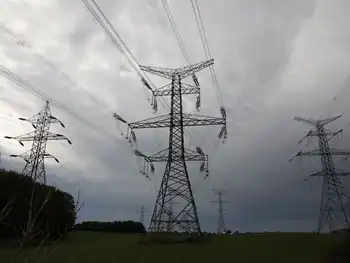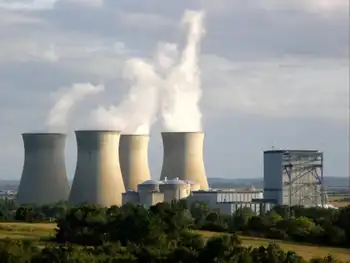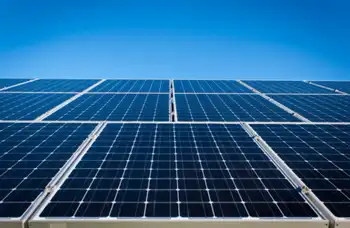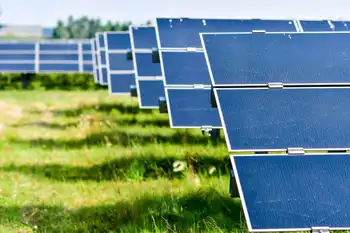Florida utility ill-prepared for major hurricanes
MIAMI, FLORIDA - Florida Power & Light has been trying to burnish its image as a good corporate citizen since it was accused of gross negligence for failing to maintain power poles and other equipment linked to massive blackouts when Hurricane Wilma hit the state last year.
FPL -- a unit of Juno Beach, Florida-based FPL Group Inc. -- has denied repeatedly that improper maintenance practices had anything to do with last year's long outages, when up to 6.5 million people were left without lights, air conditioning or hot water.
But earlier this month the Florida Public Service Commission concluded, after a lengthy review, that FPL had not done enough to limit hurricane damage to the power grid in 2005. The commission also lopped more than $550 million off a $1.7 billion hurricane surcharge that FPL was planning to collect from its customers.
In the past the commission has favored FPL, which operates as a monopoly across the most densely populated areas of south Florida, with frequent approvals of its requests.
But its ruling on May 15 came against the backdrop of angry protests from many politicians and customers about FPL's performance during both Wilma and Hurricane Katrina last year. Subsequent energy surcharges that added 20 percent or more to electric bills triggered widespread complaints about FPL, which is known to many locally as Florida Plunder and Loot.
Memories of last year's hurricane season, and long days without electricity, gasoline or ice, are still fresh in the minds of many residents of Miami-Dade, Broward and Palm Beach counties -- Florida's most populous area.
And anger over FPL could soar to new heights if the region gets whacked by anything like another Wilma during the new storm season, which gets under way on June 1.
Despite public assurances that FPL's power grid is stronger and more reliable than ever, a senior company official acknowledged in an interview shortly before the Public Service Commission's recent findings were made public that "all bets are off" if a major storm rips into the tri-county region.
FPL has reaped huge profits from explosive growth rates in the coastal areas of South Florida. The company has added about 100,000 new customers annually, according to Geisha Williams, FPL's vice president of distribution.
But high-density coastal development also means high damage exposure, said Williams, referring to FPL's overburdened infrastructure and its concentration in areas especially prone to hurricanes and windstorms.
Under a widely advertised, five-point plan dubbed "Storm Secure," FPL is taking major steps to strengthen its transmission and distribution system and make it better able to withstand hurricane-force winds, said Williams.
She said Storm Secure, launched on January 30, was only just getting under way, however. And while FPL has improved its reliability by about 50 percent since 1997, Williams acknowledged it still has a long way to go.
"We've entered a heightened era of hurricanes and I think we have to sort of re-double our efforts in looking at what we can do to strengthen the infrastructure," she said.
"It won't be overnight; it's going to take a long time," said Williams, referring to a key goal of "hardening" the electric grid to withstand wind gusts up to 150 mph (240 kph).
Wilma was a relatively weak Category 2 storm on the five-step scale of hurricane intensity when it tore into southeast Florida on October 24. It knocked out power to about 3.2 million FPL customer locations, including businesses and homes, leaving nearly 6.5 million people without power -- many for weeks.
Those same weeks could stretch into months if a sustained Category 3 storm, let alone a major Category 4 or 5, were to strike the area.
"A Category 5 or Category 4 direct hit to the City of Miami or Fort Lauderdale would be beyond devastating," Williams said.
"Hurricanes are fierce, devastating acts of Mother Nature. They cause unbelievable damage and that damage takes time to repair," she said.
No one disputes that, especially not the residents of Hurricane Alley.
But Public Counsel Harold McLean, the state's consumer advocate, suggested that FPL's storm preparedness, maintenance and other practices might improve if it operated in a more competitive Florida marketplace.
"They have no competitors. Citizens can look only to the regulatory process to control their prices and their conditions of service," said McLean. "Regulation on its best day is not as good as competition on its worst."
Related News
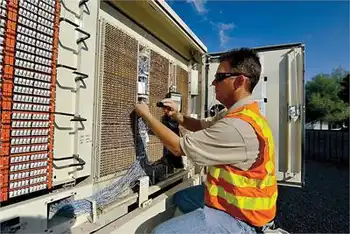
Texas utility companies waiving fees; city has yet to act
DALLAS - In response to the COVID-19 pandemic, Texas utility companies have taken unprecedented steps to keep customers' lights on, gas flowing, and online connections stable -- even if they can't pay.
Meantime, Palestine City Council members plan to discuss hardship measures Monday, but have no plans yet to ease the burden of paying two other essential services during the statewide emergency -- trash collection and water. Those services are billed through the city.
For many residents, money will be tight after the statewide emergency declaration. Businesses are cutting back or closing. Workers are staying home to avoid the coronavirus.
"We are putting…

